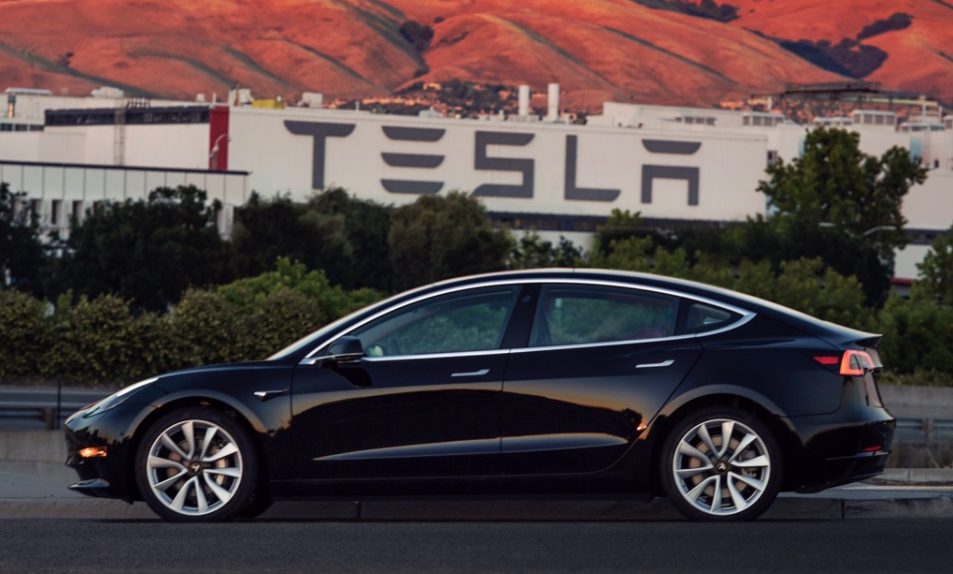Earlier this year, CNBC published a seemingly-damning report claiming that Tesla has experienced problems with Model 3 production because employees responsible for keeping an eye on quality control issues are inexperienced and “make sloppy calculations and don’t know when they’re looking at flaws.” Consequently, the report alleged that Tesla has been putting faulty battery packs into production Model 3 units.
Tesla, predictably, came back with a scathing response that completely denied every claim CNBC managed to source from a range of current and former employees. Tesla’s response essentially categorized the CNBC story as “absolutely inaccurate, contrary to all evidence, and detached from reality.”
A few months later, CNBC is back with yet another report regarding alleged Model 3 issues. This time around, CNBC, citing former and current employees, claims that many of the parts being manufactured for the Model 3 are flawed and need to be reworked.
One current Tesla engineer estimated that 40 percent of the parts made or received at its Fremont factory require rework. The need for reviews of parts coming off the line, and rework, has contributed to Model 3 delays, the engineer said.
Another current employee from Tesla’s Fremont factory said the company’s defect rate is so high that it’s hard to hit production targets. Inability to hit the numbers is in turn hurting employee morale.
The report goes on to claim that Tesla, in response, now has a specialized team at its Fremont factory who are tasked with the parts repair effort.
A Tesla spokesperson has since issued a response to CNBC‘s report:
Our goal is to produce perfect cars for every customer. That is why we review every vehicle for even the smallest refinement and conduct extensive end of line quality checks before a customer takes delivery of their car. Nothing speaks to this more than the fact that Tesla has the highest customer satisfaction levels and the highest percentage of customers who say that their next car will be a Tesla in the entire global auto industry. We care about even the smallest imperfections like a slight paint gloss texture or a wheel alignment check.
CNBC’s recent story on quality at Tesla completely misses this critical point. In what world is the pursuit of perfection looked down on? Not one we want to live in.
As an example, every Model S or Model X on the assembly line must pass through hundreds of inspection and test points. In order to ensure the highest quality, dedicated inspection teams track every car throughout every shop in the assembly line to document and address potential issues. Towards the end of the line, every vehicle is then subjected to an additional quality control process involving more than 500 other inspections and tests.
The majority of issues identified at the end of line inspection are extremely minor, and are resolved in a matter of minutes. That said, we’re working to reduce this work and make the process as efficient as possible. We then feed these improvements back to production in a pursuit of perfection.
This is reflected in the overall efficiency of the factory, which has improved dramatically. For example, the number of labor hours needed to complete a Model S or Model X vehicle has decreased. Whereas before, it took three shifts with considerable overtime to produce 100,000 Model S and X vehicles, now it can be done with only two shifts and minimal overtime.
Moreover, CNBC’s focus on remanufacturing has nothing to do with the quality of our cars. Remanufacturing is a process that literally every automaker on earth performs. CNBC is extracting a few lines from two job descriptions posted online and making gross assumptions about the roles that are inaccurate. Our remanufacturing team is very small, comprising only 0.1% (40 people) of our nearly 40,000 employees. Any “expert” claiming there is something unusual about our remanufacturing or that it has something to do with the quality of cars that come off a production line is either very confused or just completely wrong. In reality, like other automakers, Tesla remanufactures parts because doing so uses fewer materials and less energy than building a new part from scratch. It is undeniably a good thing that is ultimately better for the environment and if well done is equally good for the customer.








